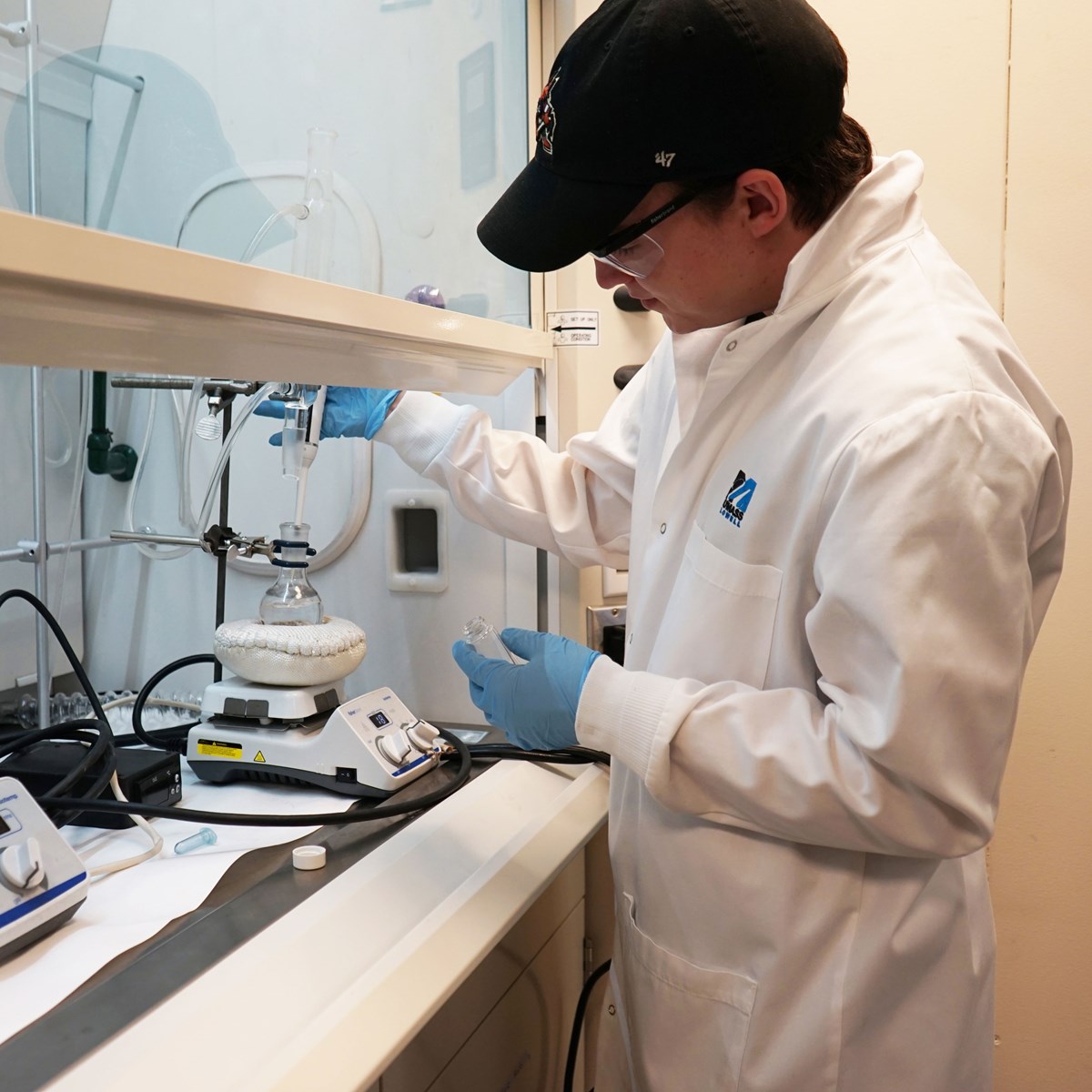Kennedy College of Sciences master’s and doctoral applicants must submit:
- An application
- An application fee
- A statement of purpose
- Letters of recommendation
- Official transcripts
- Official test score report (required for some programs, waiver form available)
Note, all required materials must be received before the application package can be evaluated. If you need to introduce new references or add other supporting documents, log on to your application, click on “Program Materials” to update your application. Please note the new documents and references will be considered only if your application has not been reviewed for admission.
Chemistry and Polymer Science Ph.D. Applicants: All required documents must be received by the Office of Graduate Admissions by Feb. 15 to receive full consideration for Fall semester acceptance. Applications completed after this deadline will be considered for acceptance in the subsequent semester.
International Students: please see the additional application requirements.
Bachelor's to Master's Students: You will not need to apply via the application portal, Visit the Bachelor's to Master's page to learn about the process to transition to your desired master's program.
Applications are only being accepted using the online process. Instructions are included in the online application link.
Tips for accessing and completing the online application:
- Capitalize your proper name.
- Once the form is submitted, changes can only be made by calling the Office of Graduate Admissions at 978-934-2390.
Apply for Summer 2025, Fall 2025 and Spring 2026
Apply for Summer 2026, Fall 2026 and Spring 2027
app-fee 2. Application Fees
The application fee is $50 for each application and is non-refundable. Applications will not be processed until this fee is received or application fee waiver has been approved and delivered to the Office of Graduate Admissions.
3. Statement of Purpose statement
In a separate document, submit a brief statement indicating your immediate and long-range goals, relevant work history, academic honors/awards received, any teaching experience and/or research conducted/published that may be pertinent to your graduate program. Two page recommended maximum.
Note: If you are applying to more than one program, you will need to submit a program-specific statement of purpose with each application package.
4. Letters of Recommendation recommendation
Master's applicants need to submit two (2) letters of recommendation except Medical Physics applicants which requires three (3) letters of recommendation. Doctoral applicants will be asked to submit three letters of recommendation. You will be asked to provide (names and email addresses) referees during the application process, and that an automated request will be sent out after the completion of your application. Alternatively, you may use the graduate admissions recommendation form (pdf) to request letters of recommendations.
Recommendations should be from instructors who have taught you, ideally in the field to which you are applying. Recommendations may also be from employers or supervisors who are in a position to compare your performance to that of your peers. Please use the recommendation form for these.
5. Official Transcripts transcripts
Provide a complete and official transcript from the institution that awarded or will award you a bachelor’s degree. You may also include transcripts from other institutions at which you have taken relevant coursework. Please note that waiting for additional transcripts may delay review of your application.
Transcripts should be sent in sealed and signed envelopes mailed to the Office of Graduate Admissions. If you received your degree from UMass Lowell, it is not necessary for you to request a transcript, we are able to provide one for you.
UMass Lowell Graduate Admissions
GPS Center
839 Merrimack Street, 2nd Floor
Lowell, MA 01854-3941
International transcripts that do not clearly indicate to the Office of Graduate Admissions that you have received a four-year bachelor’s degree, the equivalent of an American bachelor's degree must be demonstrated before an application will be processed. Please note, the Office of Graduate Admissions reserves the right to have any application credential evaluated. Baccalaureate verification may be obtained for a fee at:
Center for Educational Documentation, Inc.
P.O. Box 170116
Boston, MA 02117
Telephone: 617-338-7171
Fax: 617-338-7101
Center for Educational Documentation website
World Education Services website
test-score 6. Official Test Score Report(s) (waived for most programs)
If your program requires one or more test scores reports, request that the appropriate agency send an official test score report for the GRE or GMAT to the Office of Graduate Admissions. UMass Lowell’s school code is 3911.
These programs require official test scores:
- MS Computer Science
- Ph.D. Computer Science
- Medical Physics
- Radiological Sciences
Get more information about standardized tests.
Some master's programs will waive the test score requirements under certain conditions.
Further information is available on the GRE/GMAT/MAT Waiver Forms webpage.



